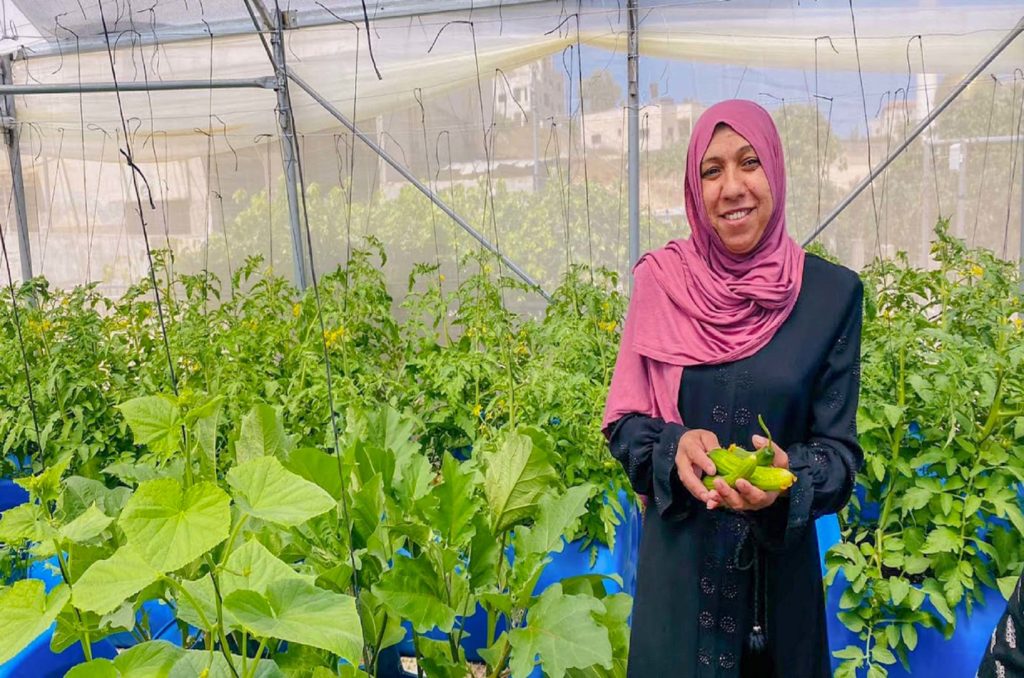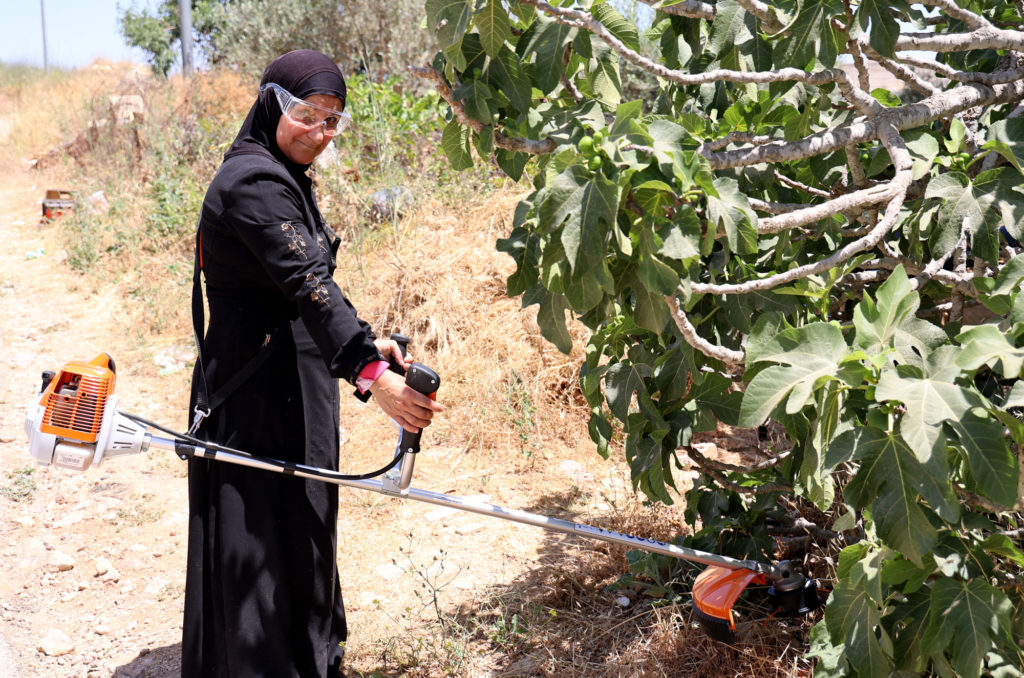Sep, 2012
In 1984, 13 local farmers in Hebron set up the Cooperative Society for Agricultural Marketing and Processing.
The cooperative came at a time when no official agriculture-related body existed. So it basically acted as a miniature ministry of agriculture in the district of Hebron until the Palestinian Authority was established in 1994 and set up an official ministry.
The cooperative today still provides agricultural guidance to farmers from across Hebron and helping them market their products in local markets. It also provides small loans and agricultural guidance for members and nonmembers alike. Its membership has grown to more than 1200.
That’s what sustainable development is all about. The US non-profit Anera partnered with the cooperative in the late 1980s, offering financial and technical support to expand the farmers’ production and marketing capabilities and eventually establish the first local grapevine nursery.
A key element of Anera’s mission since its founding in 1968 is to provide the tools to support and encourage sustainable development. In Hebron, Anera equipped the cooperative with two seedling incubators, one reservoir, one iron-made container, which was turned into the security guard’s room. It also built greenhouses on the 2,000 square meter plot of land rented by the cooperative. The society rapidly grew and so did its membership.
But disaster had already struck a few years earlier when an insect called phylloxera caused a soil infestation that devastated the vineyards in Hebron and neighboring areas . A solution was needed, and needed fast.
Without delay, Anera brought in experts from the University of California at Davis to help the coop salvage its future. After months of studying the soil and climate of the entire area, the experts agreed the best solution was to replace the grapevines with seedlings grafted on resistant rootstocks, known as American rootstocks. James Wolpert, a viticulturist from the university’s department of viticulture and enology says it’s the most effective and sustainable. “Adopting this technique opens the door on an incredible array of new varieties of table, raisin and winegrapes.”
Anera immediately distributed 90,000 grape seedlings grafted on American rootstocks to farmers through the cooperative. At the same time, Anera upgraded the cooperative’s nursery to start producing the American grape rootstocks, a first of its kind project in Hebron. The cooperative rented a 4,000 square meter plot of land for a rootstock production farm. For 11 years now, the farm has produced the healthy rootstocks not only for the cooperative’s nursery, but also for other private nurseries in the area.
“Before Anera’s intervention, the Phylloxera pest used to kill our entire supply of local grapevines, and because of that, the prices of grape seedlings had markedly risen to 15 shekels (about $1.25), almost triple the original price of non-grafted seedlings,” explained General Manager Eng. Samer Namora. “We barely sold anything because the average farmer just couldn’t afford it.”
The American derivates were bought from the Israeli market at that point and then grafted to the local varieties (scions), salvaging the plants and securing the farmers’ income. The project was a success. Not only did it lower the average price of grapevine seedlings, it also has combated the monopoly or private nurseries that had been exploiting farmers in Hebron.
But dangers still loomed. In 2005, the rootstock nursery’s production was halted again by a new viral infestation. “Technically speaking, the mother plants have to be renewed every 10-15 years,” explained Anera Agricultural Projects Manager Naser Qadous. “So the declining productivity of the nursery only meant that it was time to replace the old plants.”
In 2008, the cooperative bought a plot of land five kilometers from the center of the town of Bani Naim, east of Hebron to do just that. Two years later, Anera assisted in reclaiming land – leveling and adding terraces – and dug a cistern to harvest rainwater for irrigation in the dry summer months. It also built a fence and wall to surround the farm, and a storage room/office area.
Anera also donated 500 seedlings to help the cooperative produce new, healthy American rootstocks.
“Anera’s support for the society has never ebbed. It renewed its rootstock production project with the society to help it stand up on its feet again, out of our belief in the cooperative’s potential and on the positive effect it has had on the society,” said Anera’s Agricultural Projects Manager Naser Qadous.
Samer Namoura is very enthusiastic about the future. “Now that the farm has been established, we are waiting to see our very own locally-produced rootstocks competing with the overpriced Israeli-imported rootstocks, which used to be the only available source of grapes to farmers in Hebron.”
Seventeen years since it was built, the cooperative’s nursery is thriving. The society produces between 10,000 and 20,000 seedlings a year. In two years, the coop’s profit is expected to top 75,000 Shekels a year (about $18,750).
James Wolpert of the University of California says he’s pleased by the success of the West Bank program,”My hat’s off to these entrepreneurs as propagators who are the first necessary pioneers for opening a robust new chapter in grape production.”
The cooperative’s dreams did not stop there. Taher Abu Rayyan is the cooperative treasurer: “Hebron has an annual excess of grapes, which usually goes to waste or is sold at very cheap prices to farmers outside of Hebron.”
The director of the agriculture ministry’s Hebron office Badr Hawamdah estimated that roughly 15,000 tons of the annual production of 40,000 tons of grapes went to waste.
Why not use the excess to make other products like the grape-based molasses, dibs, and grape juice? With help from private funders, the cooperative managed to build a grape juice factory but it still lacks the machinery to operate it. The cooperative says a full-fledged grape juice factory will create more jobs and spur an increase in grape production for local farmers. Meanwhile, the factory is producing the popular grape-based molasses dibs and hopes to make other popular items like raisins and malban.
“These projects that provide a long-term sustainable income for otherwise impoverished farmers are what Anera is all about,” explained Naser Qadous.


